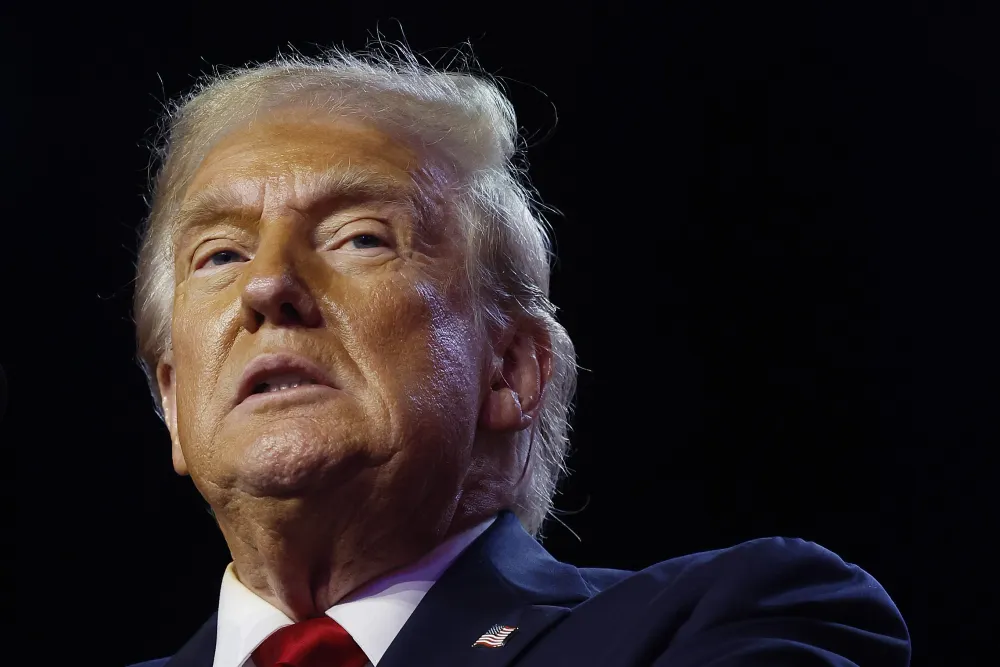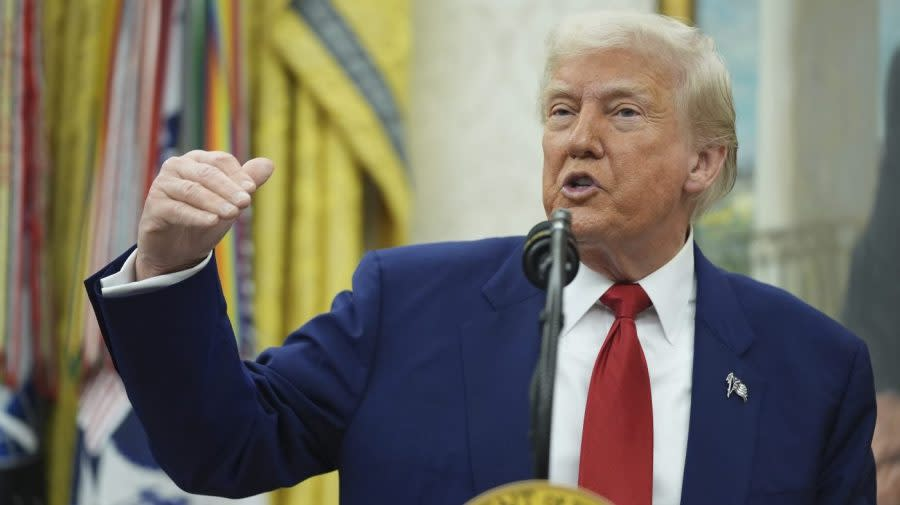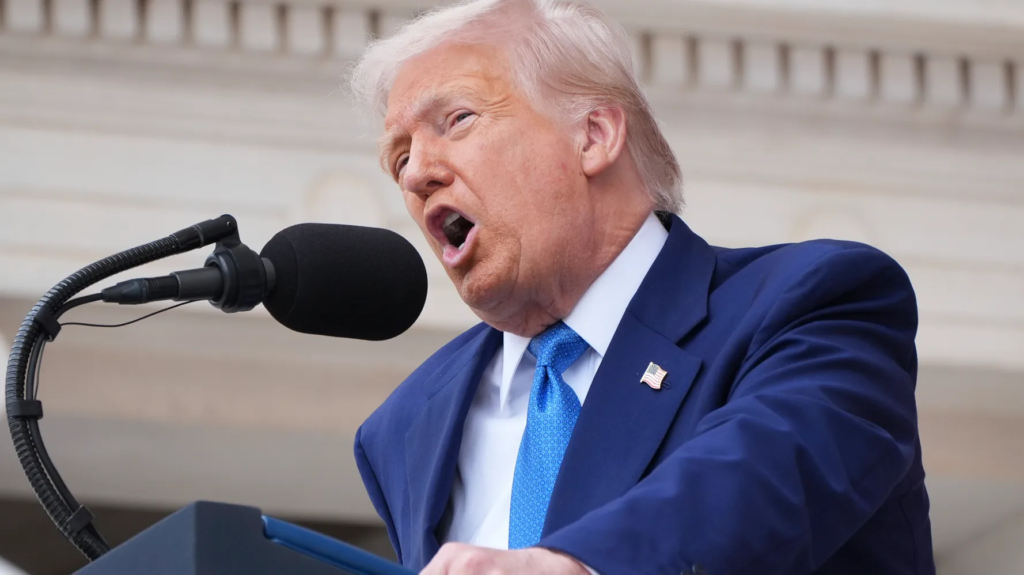In a move that has intensified the ongoing feud between President Donald Trump and major U.S. media outlets, the president has rejected a $15 million settlement offer from Paramount Global, the parent company of CBS News, to resolve a high-profile lawsuit. The legal battle centers on allegations that CBS News deceptively edited a “60 Minutes” interview with then-Vice President Kamala Harris during the 2024 presidential campaign. Trump’s legal team is demanding at least $25 million and a formal apology, while also threatening additional litigation against the network. This development, first reported by The Wall Street Journal, underscores the growing tensions between the Trump administration and media organizations, raising questions about press freedom, editorial practices, and the influence of political power on corporate decisions.

The Lawsuit: Allegations of Deceptive Editing
The controversy stems from an October 2024 “60 Minutes” interview with Kamala Harris, conducted by correspondent Bill Whitaker. Trump’s lawsuit, initially filed for $10 billion and later increased to $20 billion, accuses CBS News of manipulating Harris’s responses to portray her in a more favorable light. Specifically, Trump’s legal team claims that CBS edited out a “word salad” answer Harris gave about Israel, replacing it with a more coherent response in the broadcast to mask her alleged incompetence. The lawsuit argues that this editing constituted “partisan and unlawful acts of election and voter interference” intended to mislead the public.
CBS News has firmly denied these allegations, asserting that the interview was not doctored and that the editing was standard practice to fit time constraints. The network also made Harris’s full answers available online, a point they argue demonstrates transparency. Legal experts have widely criticized Trump’s lawsuit as baseless, citing First Amendment protections for editorial decisions. Gayle C. Sproul, CBS News’ senior VP for legal affairs, stated that editing is a necessity for broadcasters and that “60 Minutes” fairly presented the interview to inform, not mislead, viewers.
The Rejected Settlement and Corporate Pressures
Despite the legal arguments, Paramount Global offered $15 million to settle the lawsuit, a move seen as an attempt to avoid prolonged litigation and secure regulatory approval for its $8 billion merger with Skydance Media. This merger, which requires clearance from the Federal Communications Commission (FCC) under Trump-appointed leadership, has added a layer of complexity to the dispute. Shari Redstone, Paramount’s controlling shareholder, has reportedly pushed for a settlement to clear the path for the merger, though she recused herself from negotiations in February to avoid conflicts of interest.
Trump’s rejection of the $15 million offer signals his determination to extract a higher payout and a public apology from CBS News. Sources indicate that his legal team is seeking at least $25 million, and they have even floated the possibility of a second lawsuit, potentially for defamation, over a recent “60 Minutes” segment that compared Trump to a “mob boss.” This hardline stance has sparked concerns about the politicization of media regulation, particularly given the FCC’s involvement. FCC Chairman Brendan Carr, a Trump appointee, has launched an investigation into CBS’s editing practices and suggested that the allegations could impact the merger review, raising fears of regulatory retaliation.

Internal Turmoil at CBS News
The lawsuit and settlement talks have triggered significant upheaval within CBS News. Last month, “60 Minutes” executive producer Bill Owens resigned, citing a loss of editorial independence due to corporate pressure from Paramount executives. Owens’ departure was followed by the abrupt exit of CBS News CEO Wendy McMahon, who stated in a memo that she and the company disagreed on the “path forward.” McMahon had reportedly resisted issuing an apology as part of any settlement deal, a position that put her at odds with Paramount’s leadership.
These resignations have rattled CBS News staff, with some journalists expressing alarm at the prospect of settling a lawsuit they view as meritless. A CBS correspondent, speaking anonymously to CNN, called the potential settlement a “joke” that would make the network a “laughingstock.” Veteran “60 Minutes” correspondent Scott Pelley also publicly criticized Trump and the lawsuit in a commencement address at Wake Forest University, emphasizing the importance of a free press in holding power to account.
Broader Implications for Media and Politics
Trump’s legal campaign against CBS is part of a broader pattern of litigation against media outlets he perceives as adversarial. In December 2024, ABC News agreed to pay $15 million to Trump’s presidential foundation and issue an apology to settle a defamation lawsuit over statements by anchor George Stephanopoulos. Similarly, Meta paid $25 million, and the social media platform X settled for $10 million to resolve disputes with Trump. These settlements have raised concerns among press freedom advocates, who warn that media companies may be capitulating to avoid regulatory or legal repercussions from the Trump administration.
The Freedom of the Press Foundation has threatened to sue Paramount if it settles with Trump, arguing that such a move could violate anti-bribery laws. Several Democratic senators have echoed these concerns, cautioning that a settlement could be perceived as a payoff to secure FCC approval for the Skydance merger. Richard Painter, a former White House ethics lawyer, described the potential settlement as a “bribe,” highlighting the ethical and legal risks for Paramount.
Public and Political Reactions
The public response to Trump’s rejection of the settlement has been polarized, reflecting the broader divide in American politics. Posts on X reveal strong sentiments on both sides. Some users praise Trump for holding CBS accountable, with one calling it a “win for all Americans wronged by CBS” and urging him to “bankrupt these corrupt losers.” Others criticize the lawsuit as a “farce” and accuse Trump of attempting a “shakedown” for personal gain. These reactions underscore the deep mistrust between segments of the public and mainstream media, a divide that Trump has long exploited in his rhetoric.
The lawsuit also raises questions about the role of the FCC in media disputes. Trump’s public calls to revoke CBS’s broadcasting license, coupled with Carr’s investigation, have alarmed journalists and First Amendment advocates. Former CBS News correspondent Marvin Kalb warned that if media outlets “bend a knee” to political pressure, it could mark a step toward autocracy. The FCC’s release of the full “60 Minutes” interview footage, at Carr’s request, further blurs the line between regulatory oversight and political influence.

What’s Next?
Mediation between Trump and Paramount was scheduled to continue on Thursday, May 29, 2025, though previous sessions have stalled. Trump’s legal team filed objections to Paramount’s motions to dismiss the lawsuit, arguing that the case should proceed in the Northern District of Texas, where it was filed, and that CBS’s actions constituted “commercial speech” not protected by the First Amendment. They also claimed that Trump suffered “mental anguish and confusion” from the edited interview, a point that has drawn skepticism from critics.
As Paramount navigates the legal and corporate fallout, it is also preparing for potential setbacks in its merger plans. The company is reportedly set to nominate three new board members to strengthen its governance, a move seen as a contingency if the Skydance deal collapses. Meanwhile, CBS News faces internal challenges as it seeks new leadership to replace McMahon and restore stability.
Conclusion
President Trump’s rejection of Paramount’s $15 million settlement offer has escalated his ongoing battle with CBS News, casting a spotlight on the intersection of media, politics, and corporate interests. The lawsuit, rooted in allegations of deceptive editing, has broader implications for press freedom and the independence of newsrooms. As mediation continues and the Skydance merger hangs in the balance, the outcome of this dispute could set a precedent for how media companies navigate legal and regulatory pressures in the Trump era. For now, the standoff serves as a stark reminder of the challenges facing American journalism in an increasingly polarized landscape.
Sources: The Wall Street Journal, Fox News, CNN Business
Must Read :- Inspirational Teen Overcomes Childhood Attack to Graduate High School with a 4.0 GPA





